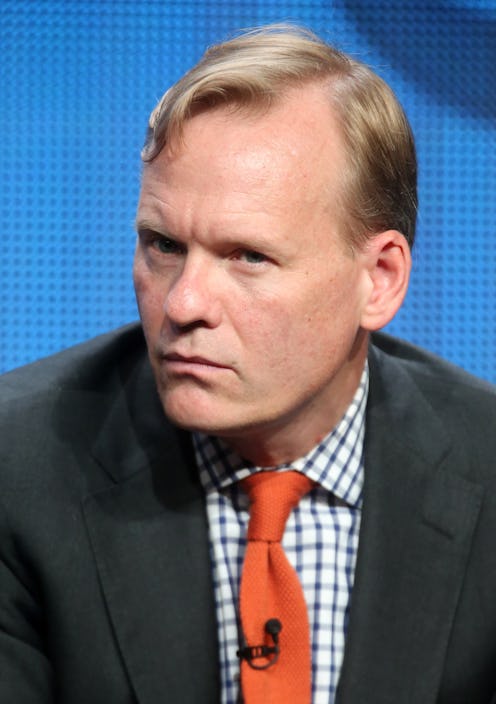News
Prepare For Some "Dickersonian" Debate Questions
The moderators at CNBC were universally panned for their handling of the last Republican debate, meaning all the moderators from here on out will want to bring their A game. Thankfully, one of the moderators of the second Democratic debate is John Dickerson, host of CBS’s Face The Nation, co-host of Slate's Political Gabfest (which I highly recommend), and generally a very well-respected political journalist. He even has a term named after him: “Dickersonian,” the style of questioning he’s become known for.
The term refers to Dickerson’s skillful combination of a laid-back, friendly demeanor and pointed, unexpected questions. As a result of this technique, the politicians Dickerson interviews are often caught completely off-guard. On a few occasions, Dickerson’s ability to catch them flat-footed has produced newsworthy, and sometimes downright embarrassing, moments for national politicians.
In 2004, Dickerson asked President George W. Bush the following question, which is worth quoting in full:
In the last campaign, you were asked a question about the biggest mistake you'd made in your life, and you used to like to joke that it was trading Sammy Sosa. You've looked back before 9/11 for what mistakes might have been made. After 9/11, what would your biggest mistake be, would you say, and what lessons have you learned from it?"
This is a very sneakily-worded question. Dickerson begins by noting “the biggest mistake you’d made in your life” and references a harmless, non-political joke Bush made earlier. Easy stuff. But then, he then abruptly switches gears, bringing up Sept. 11 and the “mistakes [that] might have been made” before the attacks. Before Bush can take that in, though, Dickerson changes course yet again, and asks Bush about his biggest mistake after Sept. 11.
It was a masterpiece of misdirection, and it worked. This was Bush’s answer, if you want to call it that:
I wish you would have given me this written question ahead of time, so I could plan for it. Uhhh, John, I’m sure historians will look back and say, gosh, he could have done it better this way, or that way. You know, I just — I’m sure something will pop into my head here in the midst of this press conference, with all the pressure of trying to come up with an answer, but it hadn’t yet.
Ouch. A month later at the White House Correspondents' Dinner, Bush joked he should have said his biggest mistake was calling on Dickerson.
More recently, Dickerson deployed the strategy while interviewing Rick Perry, who was then still a candidate for the Republican nomination:
You said: “The American people see a rigged game. Where insiders get rich and the middle class pays the tab.” Now, that’s coming from you. We talked to Mayor Bill de Blasio of New York; it could have come from him. Could have come from Senator Warren of Massachusetts. Uhhh, so, talk about that a little bit.
First, Dickerson quotes one of Perry’s talking points — lulling the former Texas governor into a false sense of security. But he then points out, not unreasonably, that Perry’s words closely resemble the rhetoric of two of the most well-known liberal Democrats in elected office. At that point, the trap was set, and Dickerson simply let Perry writhe. And writhe he did.
First, Perry attacked Wall Street and wealth inequality. He then denounced Dodd-Frank, the package of financial regulations enacted after the economic collapse. Then, he said that Wall Street needed to be regulated. When Dickerson pointed out that Dodd-Frank was regulation of Wall Street, Perry said that it was overregulation. It was a muddled, non-sensical response, and it revealed Perry’s lack of a coherent economic platform.
Dickerson hasn’t only gone after Republicans. During the 2008 campaign, after Hillary Clinton aired a commercial implying that Barack Obama was ill-equipped to handle foreign policy crisis, Dickerson innocuously asked Clinton’s staff “what foreign policy moment [they would] point to in Hillary's career where she's been tested by crisis?” The result was a long, long pause, which was followed by a rambling non-answer about Clinton’s advocacy for women’s rights in China which, while certainly commendable, don’t exactly constitute a foreign policy crisis.
Hopefully, Dickerson will bring this talent to the next Democratic debate — and if he does, the candidates on stage may find themselves longing for the moderators of CNBC.
